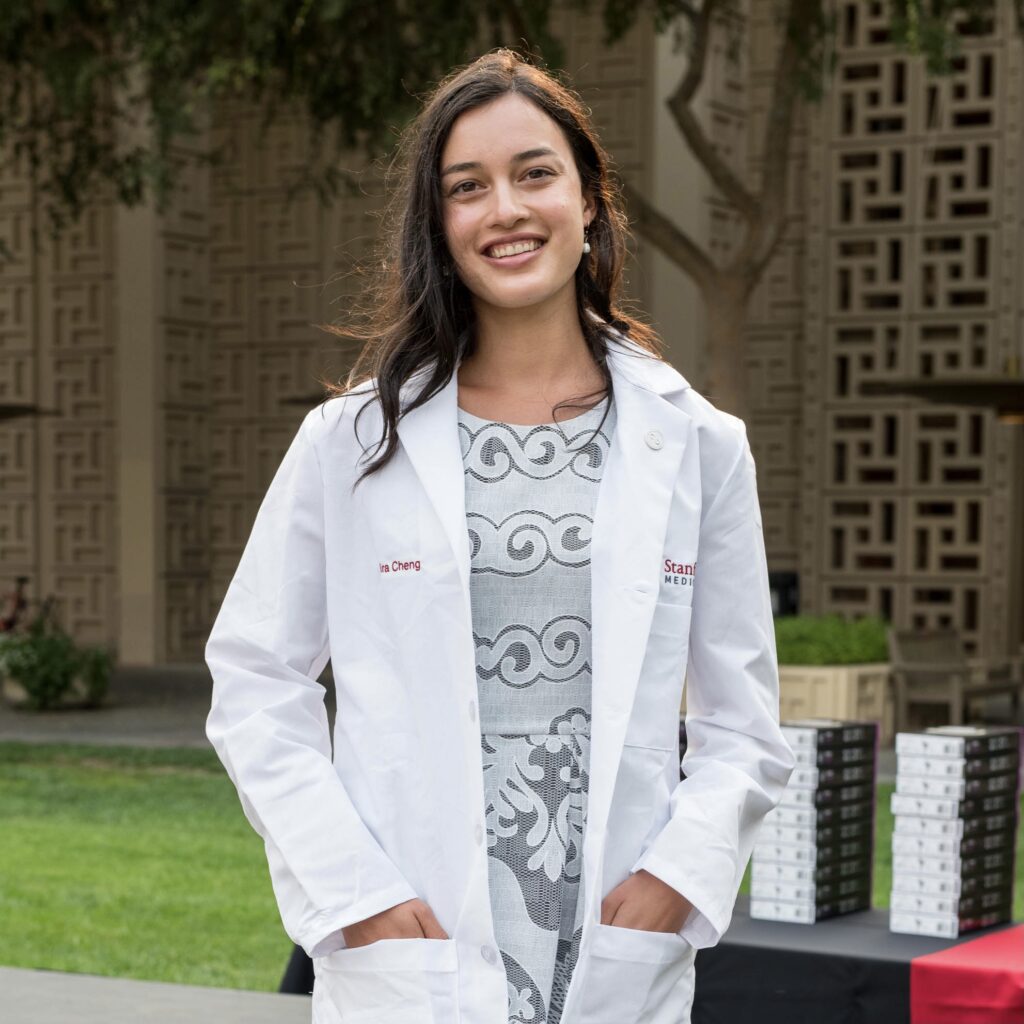Published: 03/23/2023

The Stanford Center for Innovation in Global Health has selected the 2023-24 Global Health Media Fellow: Mira Cheng, a second-year Stanford medical student. Cheng aspires to be a pediatric infectious diseases doctor who works in global health settings to save children’s lives through compassionate medicine and impactful advocacy.
“Knowledge is what drives us when making important life decisions. Unfortunately, it is so often withheld from patients, particularly children,” Cheng said. “In global health work, this power imbalance is even more pronounced in that knowledge is often extracted from communities, but not returned. Through this Fellowship, I hope to gain the necessary tools and experiences to become an excellent physician-communicator to fight this paradigm and empower the patients and communities I serve.”
Cheng is the 13th fellow to be selected for this unique program designed to create a generation of physician-storytellers who can shine a light on under-reported global health challenges and build health literacy among populations not traditionally served by mainstream media. The fellowship enables a medical school student each year to master the principles of storytelling and multimedia and medical journalism through journalism school training and an intensive internship with Sanjay Gupta at CNN, as well as a capstone global health project. Alumni, most of them doctors, now convey medical insights and expertise through compelling television interviews, engaging blogs and podcasts, and persuasive op-eds.
.
As the Global Health Media Fellow, I hope to give voice to the stories that matter to my communities.
—Mira Cheng
Cheng grew up in a small Hungarian town outside of Budapest. Her deep passion for seeking out and highlighting marginalized voices was sparked when she moved to the United States with her family when she was ten. “In this transition, I lost my ability to communicate – the new language, the new culture, everything was foreign and inaccessible,” she recalled. “I suddenly understood what it feels like to be silenced and to be unable to tell the stories that matter to you, that define you.”
As a medical student researcher with Stanford’s LaBeaud Lab, Cheng has worked in Grenada, West Indies, supporting a study of the neurodevelopmental effects of Zika virus on children whose mothers had the virus while pregnant.
Cheng’s experiences there further impressed the importance of telling global health stories from the point of view of those most impacted. “The mothers told me about the terror they felt when they were diagnosed with Zika virus during pregnancy, the joint pain they were still experiencing from past infections, and the effects of climate change on the prevalence of mosquito-borne diseases on the island,” she recalled. “An intricate story emerged that had clear public health implications and importance to the community but was not being discussed outside of academia. As a future global health practitioner, I want to be able to tell these stories in a way that centers the communities facing health challenges and their experiences and needs.”
Cheng is also a member of the Stanford Vax Crew, using communication to promote vaccination, communications lead for Plastic Planet, an arts and science collaboration between Stanford Researcher Dr. Desiree LaBeaud and Visiting Artist Jean Shin, and co-editor-in-chief of Stanford Medicine’s humanities and literary journal.
“I feel extremely grateful to have been given this opportunity to marry my passion for storytelling and medicine,” said Cheng. “I am excited to embark on this journey because I know that it will challenge me and shape me into a better listener and communicator. As the Global Health Media Fellow, I hope to give voice to the stories that matter to my communities.”